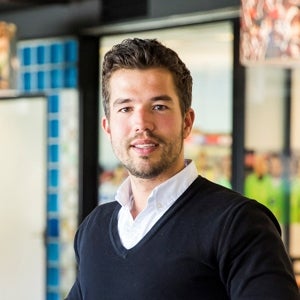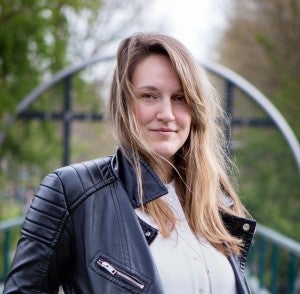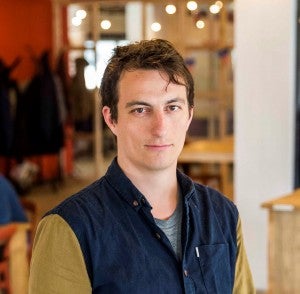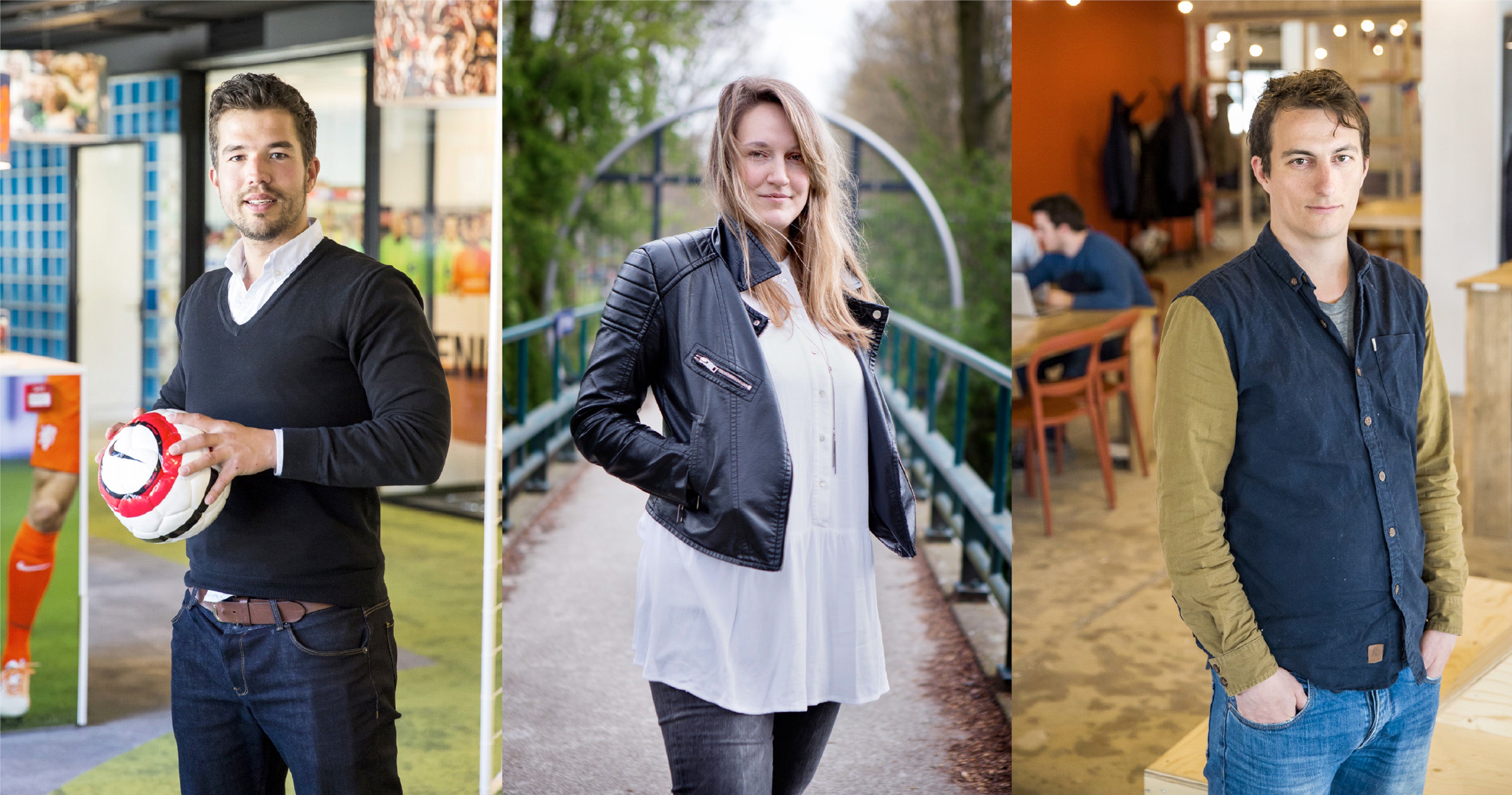There are now around 100.000 Vrije Universiteit alumni. What have they been doing since they finished their studies? In this monthly section, we feature three alumni who studied in the same programme. This time: the Master’s in Journalism which is celebrating its tenth anniversary this year.
‘I knew straight away that I wanted to do that too!'

What kind of work do you do? ‘I manage more than seventy social media channels for the KNVB (the Royal Dutch Football Union) and determine the policy relating to that. For example, football journalist Johan Derksen recently said that it was a bad idea to have too many Moroccans on a team. I decide whether we are going to pay attention to that, and why or why not. I also generate a lot of content. While you mostly give interviews as a reporter, social media is very versatile: you write, photograph, film and edit. That suits me down to the ground, because I enjoy variety.’
When did you realise that you wanted to do journalism? ‘When I was 12, I was sitting on the bus with my football club, on the way to a competition between the Dutch national team and Germany. A boy from an older team had made a video montage for the bus journey of all of the Ajax highlights from the Champions League, that he’d put together himself. I knew straight away that I wanted to do that too! On my next birthday, I asked for a second video recorder. I used it to record about eighty video tapes worth of football footage.’
Was it a tough Master’s? ‘Yes, if you look at the number of students passing each year. With us, that was no more than five out of thirty. I succeeded because I really wanted to finish that year. I wanted to go to film school in America the following year, and my application had already been accepted. However, just like me, a lot of my classmates entered in through the college journalism programme in Windesheim. I think the gap between college and the research-oriented Master’s course was pretty big.’
‘I made a lot of nice contacts during the programme.'

You work at Editie NL. What does that involve? ‘As online editor, I write news items for the website and keep up with social media. I also come up with and plan news items for the TV programme. Today I’ve prepared a programme about weird food combinations, like pancakes with fries. They’re really popular all of a sudden, so for Editie NL we decided to find out why.’
What’s it like to make television programmesafter doing a text-oriented Master’s? ‘That took some getting used to. As a writer, you make the end product yourself, and at the most, an editor might change one or two things. In television, you send a ready-made package to the reporter, who then goes to work on it. So you hand your work more over to others.’
What did you think of the Master’s? ‘I thought it was a shame and didn’t make sense that we didn’t get more time for research journalism. There was only a month allocated to that, compared to six months for regional journalism. It could have been my favourite subject, otherwise. I made a lot of nice contacts during the programme. A big group of us are going out for a drink soon, and I just visited one of my old Master’s classmates who recently had a baby.
Who was your favourite teacher? ‘Jan Kleinnijenhuis, who taught statistics. He somehow managed to make a dry subject interesting by using lots of concrete examples. He also laughed really hard at his own jokes. I liked that, because I do the same.’
‘I used to want a grand and compelling life’

How did you end up at Blendle? ‘After my Master’s, I did a work placement at the online platform De Nieuwe Pers (The New Press). DNP was one of the first media to offer subscriptions to individual journalists. When Blendle started up, DNP worked a lot with them. That’s how I heard there was a position available. As chief editor at Blendle, I manage the editorial team and think about how we can best offer articles.
Why did you study journalism? ‘I find current affairs and public debate very interesting, and I’ve always been good at writing. I wanted to do more with that. There is also something rather romantic about the profession. I used to want to be Boudewijn Büch, leading a grand and compelling life on the fringes of society. You can find that fringe in journalism. Think of the classical image of the journalist with a bottle of whisky in the desk drawer, and sits bent over the typewriter with a cigarette sticking out of his mouth.’
What did you think of the programme? ‘I thought the practical part of the Master was useless, I mean, we published maybe two items in the Amsterdam-based magazine Echo and that was it. But I got a lot of ideas about the future of journalism, especially from the subjects taught by Irene Costera Meijer, about the role of the journalist in society and the relationship between the journalist and the public. These subjects formed the basis for the decisions I now make at Blendle.’






